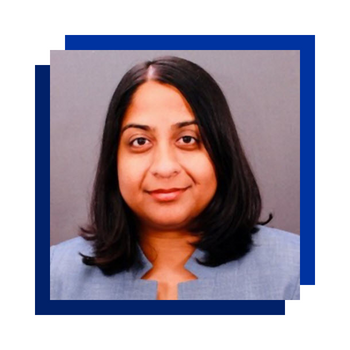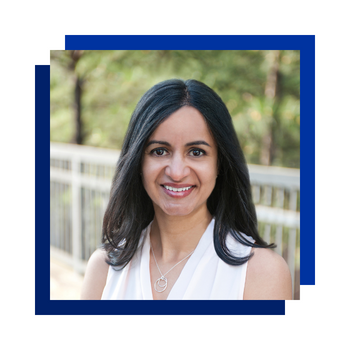Faculty Partner with WHO to Prevent Global Birth Defects and Fight TB

By Shelby Crosier
As recognized experts in their fields, Rollins faculty often collaborate with partners at a global level. Sometimes, this means working alongside multilateral organizations such as the World Health Organization (WHO) and others. Here, we highlight how two faculty are working with the WHO to make international progress for public health.
Vijaya Kancherla, PhD
 Vijaya Kancherla, PhD, associate professor of epidemiology, serves as deputy director of Emory’s Center for Spina Bifida Prevention. She first started working with the Department of Maternal, Newborn, Child, and Adolescent Health at WHO in 2017 when the department’s Birth Defects Working Group asked her to lend her expertise to a global birth defects surveillance mapping project. She has served as a consultant and technical expert on a variety of projects ever since.
Vijaya Kancherla, PhD, associate professor of epidemiology, serves as deputy director of Emory’s Center for Spina Bifida Prevention. She first started working with the Department of Maternal, Newborn, Child, and Adolescent Health at WHO in 2017 when the department’s Birth Defects Working Group asked her to lend her expertise to a global birth defects surveillance mapping project. She has served as a consultant and technical expert on a variety of projects ever since.
“I became involved to contribute my learning toward global birth defects surveillance and to assist in ways that reduce global disparities in birth defects surveillance, research, and prevention,” she says.
Her work with WHO has led to global action toward prevention of neural tube defects. In May 2023, the World Health Assembly passed a resolution on preventing neural tube defects using large scale food fortification with folic acid. This was in part informed by a health policy advocacy paper, to which Kancherla contributed, about the need for folic acid fortification of staple foods and the status of current prevention efforts.
Kancherla is currently a member of the technical working group on burden of birth defects, in which she assists with projects focused on estimating country-specific birth defects prevalence and filling knowledge gaps in countries that do not have surveillance programs.
Sarita Shah, MD
 Sarita Shah, MD, professor of epidemiology and global health, has collaborated with multilateral organizations throughout much of her decades-long career in TB research and programs. She has been a member of working groups at WHO dedicated to defining categories of drug-resistant TB and improving TB screening for people with HIV.
Sarita Shah, MD, professor of epidemiology and global health, has collaborated with multilateral organizations throughout much of her decades-long career in TB research and programs. She has been a member of working groups at WHO dedicated to defining categories of drug-resistant TB and improving TB screening for people with HIV.
Currently, Shah sits on a technical review panel at The Global Fund, which reviews countries’ proposals for delivery of TB care and provides funding to help them come to fruition. According to her, this has been an incredibly rewarding part of her career.
“I got into this field to generate evidence for better ways of providing care for people with TB, and now my work with The Global Fund helps to make sure that funding is going to implementing the best care we have for TB,” she says. "There are so many gaps in our current care for people with TB despite major advances in the past decade. My hope is that I am able to move the needle in terms of ensuring that the best practices are getting to the people and communities that need it.”
Shah was recently invited to join WHO as part of their technical advisory group for TB for the Western Pacific Region, where she will continue promoting better TB screening, care, and prevention worldwide.


